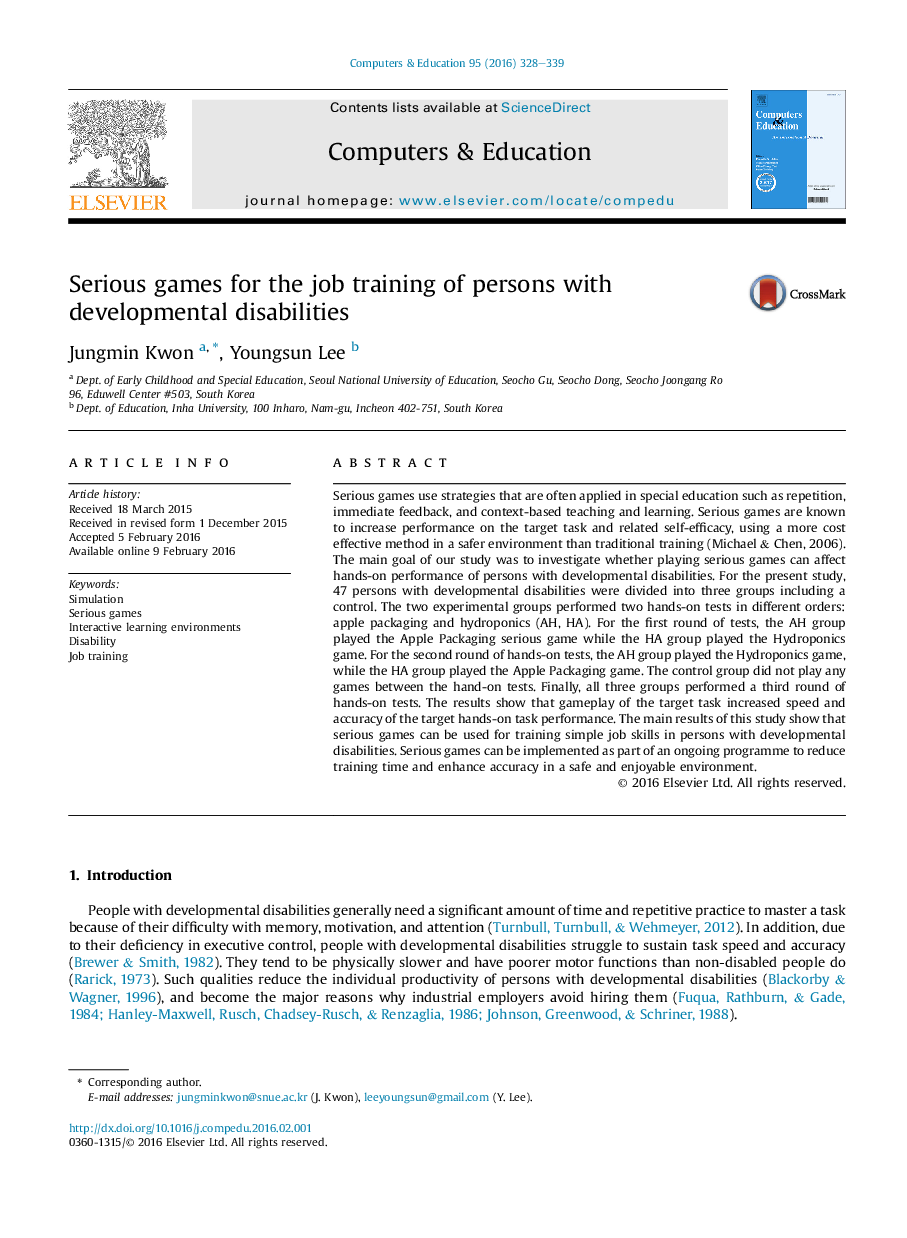| کد مقاله | کد نشریه | سال انتشار | مقاله انگلیسی | نسخه تمام متن |
|---|---|---|---|---|
| 6834926 | 618164 | 2016 | 12 صفحه PDF | دانلود رایگان |
عنوان انگلیسی مقاله ISI
Serious games for the job training of persons with developmental disabilities
ترجمه فارسی عنوان
بازی های جدی برای آموزش شغلی افراد مبتلا به اختلالات رشدی
دانلود مقاله + سفارش ترجمه
دانلود مقاله ISI انگلیسی
رایگان برای ایرانیان
کلمات کلیدی
شبیه سازی، بازی های جدی محیط یادگیری تعاملی، معلولیت، آموزش کار،
موضوعات مرتبط
علوم انسانی و اجتماعی
علوم اجتماعی
آموزش
چکیده انگلیسی
Serious games use strategies that are often applied in special education such as repetition, immediate feedback, and context-based teaching and learning. Serious games are known to increase performance on the target task and related self-efficacy, using a more cost effective method in a safer environment than traditional training (Michael & Chen, 2006). The main goal of our study was to investigate whether playing serious games can affect hands-on performance of persons with developmental disabilities. For the present study, 47 persons with developmental disabilities were divided into three groups including a control. The two experimental groups performed two hands-on tests in different orders: apple packaging and hydroponics (AH, HA). For the first round of tests, the AH group played the Apple Packaging serious game while the HA group played the Hydroponics game. For the second round of hands-on tests, the AH group played the Hydroponics game, while the HA group played the Apple Packaging game. The control group did not play any games between the hand-on tests. Finally, all three groups performed a third round of hands-on tests. The results show that gameplay of the target task increased speed and accuracy of the target hands-on task performance. The main results of this study show that serious games can be used for training simple job skills in persons with developmental disabilities. Serious games can be implemented as part of an ongoing programme to reduce training time and enhance accuracy in a safe and enjoyable environment.
ناشر
Database: Elsevier - ScienceDirect (ساینس دایرکت)
Journal: Computers & Education - Volume 95, April 2016, Pages 328-339
Journal: Computers & Education - Volume 95, April 2016, Pages 328-339
نویسندگان
Jungmin Kwon, Youngsun Lee,
